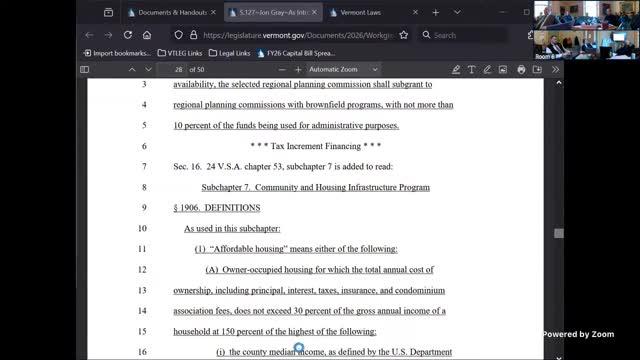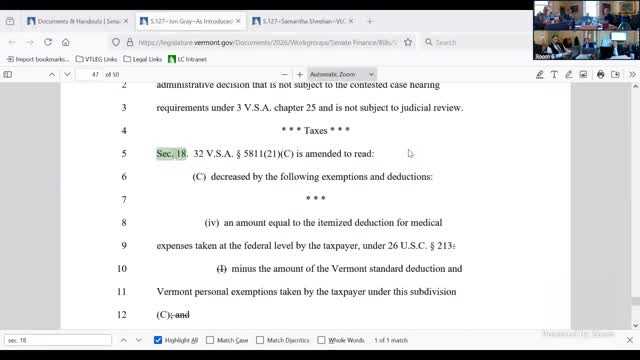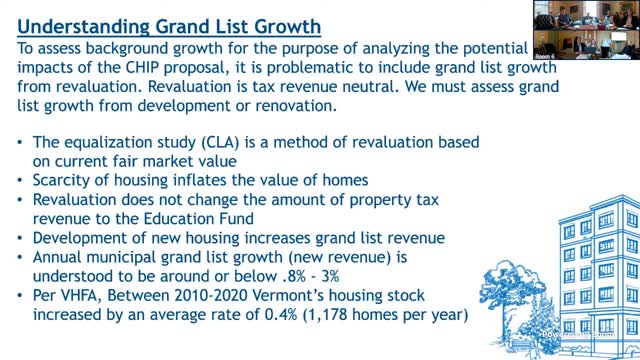Article not found
This article is no longer available. But don't worry—we've gathered other articles that discuss the same topic.

Bill would let developers or towns finance infrastructure with project-based tax-increment financing to spur housing

S.127 would alter medical-expense deduction for continuing‑care fees and freeze value of new ADUs, supporters say

